Page 6 - Bricks For Katoomba From Dubbo Yard— Freight Charge Problem
Browse by(4)
Titles A-Z(25)
Titles D(55)
- Daily Advertiser (Wagga Wagga, NSW : 1911 - 1954)View title info
- Daily Commercial News and Shipping List (Sydney, NSW : 1891 - 1954)View title info
- Daily Examiner (Grafton, NSW : 1915 - 1954)View title info
- The Daily Express (Wagga Wagga, NSW : 1919 - 1930)View title info
- Daily Herald (Adelaide, SA : 1910 - 1924)View title info
- The Daily Mail (Brisbane, Qld. : 1903 - 1926)View title info
- Daily Mercury (Mackay, Qld. : 1906 - 1954)View title info
- The Daily News (Perth, WA : 1882 - 1950)View title info
- Daily News (Sydney, NSW : 1938 - 1940)View title info
- The Daily News and Evening Chronicle (Sydney, NSW : 1848)View title info
- The Daily Northern Argus (Rockhampton, Qld. : 1875 - 1896)View title info
- Daily Observer (Tamworth, NSW : 1917 - 1920)View title info
- Daily Pictorial (Sydney, NSW : 1930 - 1931)View title info
- Daily Post (Hobart, Tas. : 1908 - 1918)View title info
- Daily Standard (Brisbane, Qld. : 1912 - 1936)View title info
- Daily Telegraph (Launceston, Tas. : 1883 - 1928)View title info
- The Daily Telegraph (Meekatharra, WA : 1918 - 1947)View title info
- The Daily Telegraph (Sydney, NSW : 1883 - 1930)View title info
- The Daily Telegraph (Sydney, NSW : 1931 - 1954)View title info
- Daily Telegraph and North Murchison and Pilbarra Gazette (WA : 1920 - 1947)View title info
- Daily Witness (Young, NSW : 1923 - 1924)View title info
- The Dalby Herald (Qld. : 1910 - 1954)View title info
- Dalby Herald and Western Queensland Advertiser (Qld. : 1866 - 1879)View title info
- Dampier Despatch (Broome, WA : 1904 - 1905)View title info
- Dandenong Advertiser and Cranbourne, Berwick and Oakleigh Advocate (Vic. : 1914 - 1918)View title info
- The Dandenong Journal (Vic. : 1927 - 1954)View title info
- Darling Downs Gazette (Qld. : 1881 - 1922)View title info
- The Darling Downs Gazette and General Advertiser (Toowoomba, Qld. : 1858 - 1880)View title info
- The Dawn (Sydney, NSW : 1888 - 1905)View title info
- Day Dawn Chronicle (WA : 1902 - 1909)View title info
- Dayboro Times and Moreton Mail (Qld. : 1937 - 1940; 1945 - 1954)View title info
- Daylesford Advocate, Yandoit, Glenlyon and Eganstown Chronicle (Vic. : 1914 - 1918)View title info
- The Dead Bird (Sydney, NSW : 1889 - 1891)View title info
- Delegate Argus (NSW : 1906 - 1943)View title info
- Delegate Argus and Border Post (NSW : 1895 - 1906)View title info
- Deloraine - Westbury Advocate (Ulverstone, Tas. : 1893 - 1894)View title info
- Deloraine and Westbury Advertiser (Tas. : 1910 - 1912)View title info
- Democrat (Lithgow, NSW : 1915 - 1916)View title info
- Der Australische Spiegel = The Australian Mirror (Perth, WA : 1952)View title info
- The Derwent Star and Van Diemen's Land Intelligencer (Hobart, Tas. : 1810 - 1812)View title info
- Devon Herald (Latrobe, Tas. : 1877 - 1889)View title info
- Dimboola Banner and Wimmera and Mallee Advertiser (Vic. : 1914 - 1918)View title info
- Direct Action (Sydney, NSW : 1914 - 1930)View title info
- The Dispatch (Sydney, NSW : 1843 - 1844)View title info
- The Don Dorrigo Gazette and Guy Fawkes Advocate (NSW : 1910 - 1954)View title info
- Donald Times (Vic. : 1915 - 1918)View title info
- Dookie and Katamatite Recorder (Vic. : 1902 - 1920)View title info
- The Dowerin Guardian and Amery Line Advocate (Wyalkatchem, WA : 1927 - 1954)View title info
- Dubbo Dispatch and Wellington Independent (NSW : 1887 - 1932)View title info
- The Dubbo Liberal and Macquarie Advocate (NSW : 1894 - 1954)View title info
- Dungog Chronicle : Durham and Gloucester Advertiser (NSW : 1894 - 1954)View title info
- Dunmunkle Standard (Vic. : 1914 - 1918)View title info
- Dunolly and Betbetshire Express and County of Gladstone Advertiser (Vic. : 1915 - 1918)View title info
- Dutch Australian Weekly (Sydney, NSW : 1951 - 1993)View title info
- Dutch Weekly (Sydney, NSW : 1993 - 2004)View title info
The Dubbo Liberal and Macquarie Advocate (NSW : 1894 - 1954)(60)
1942
The Dubbo Liberal an... : 12 February 1942(6)
Page 6(16)
Advertising
{No abstract available}
Advertising : 362 words view this articleAdvertising
{No abstract available}
Advertising : 104 words view this articleForbes Meat-Canning Likely New Industry
If strong representations made by Mr. J. P. Breen, M.H.R. for Calare, are successful, meat-canning works will be established at Forbes:. ...
Article : 266 words view this articleNEWS VIEWS ON : Things That Really Happened Sydney, Tuesday.
A case which occurred at Launceston this week recalls a similar case at Dubbo some years ago. A Launceston man identified the ...
Article : 696 words view this articleCHANGE OF FACE PAY TRADESMEN BEFORE LOANS IS LATEST POLICY
Completely reversing its former policy, the New South Wales Hospitals Commission has directed the Dubbo District Hospital in future ...
Article : 790 words view this articleCOMMERCIAL LATE SHORN WOOLS SOLD
Report on appraisement No. 69, held by the Australian Mercantile, Land & finance Co. Ltd., Sydney, February 9, 1942:— ...
Article : 272 words view this articleWHEAT PRICES
The Australian Wheat Board's quotations: Millers' lots for home consumption, bulk 3/11¼: prices for export on application to the board. ...
Article : 24 words view this articleBricks For Katoomba From Dubbo Yard— Freight Charge Problem
Hector's Brick Co. Ltd., Dubbo, has begun trucking bricks to Katoomba, and although expansion of the firm's trade is only on a trial ...
Article : 484 words view this articleCOURSING Wilko Boy's Win Proves Him Best Dubbo Dog
{No abstract available}
Detailed Lists, Results, Guides : 703 words view this articleONE FIE HYDRANT FOR BUILDINGS WORTH £110,000
There is only one fire hydrant in the grounds of the Dubbo District Hospital, and if a serious fire were to develop, £110,000 worth of ...
Article : 362 words view this articleGOLF Boy Champion Beaten By Billy Bolger In Fine Exhibition
In an exhibition game over 18 holes stroke play yesterday, W. J. Belger, national open champion, was opposed to Dubbo Golf Club's ...
Article : 528 words view this articleDUBBO A.R.P. WARDENS TO BE SWORN IN
Local air raid wardens will be sworn in at the council chambers on Monthly night, according to an announcement made by the Mayor (Ald. E. B. ...
Article : 110 words view this articleAdvertising
{No abstract available}
Advertising : 248 words view this articleARMY BOXING TITLE Ron McLaughlin Trains In Dubbo for Bout
Regarded in many quarters as the genuine welterwright champion boxer of Australia, R[?] McLaughlin, now in the Dubbo A.I.F. camp, is in ...
Article : 367 words view this articleQUALITY STOCK FIRM AT DUNEDOO
{No abstract available}
Detailed Lists, Results, Guides : 197 words view this articleAdvertising
{No abstract available}
Advertising : 9 words view this article
Article text
Why are there text errors?Word position
| Original |
|---|
| Corrected |
Line position
| Line Above | {LINE ABOVE} |
|---|---|
| Current Line | |
| Line below | {LINE BELOW} |
Paragraphs
Paragraph operations are made directly in the full article text panel located to the left.
Paragraph operations include:
- Adjust the order paragraphs
- Add new blank paragraphs
- Duplicate an existing paragraph
- Remove a paragraph
Zones
Zone operations are made directly in the full article text panel located to the left.
Zone operations include:
- Adjust the order of zones
- Add new blank zone
- Remove a zone
Tables
Tables.
Coming soon
Illustrations
Metadata
Details
Page 6 - Bricks For Katoomba From Dubbo Yard— Freight Charge Problem
- Article identifier
- http://nla.gov.au/nla.news-article135895929
- Page identifier
- http://nla.gov.au/nla.news-page15284155
- APA citation
- Bricks For Katoomba From Dubbo Yard— Freight Charge Problem (1942, February 12). The Dubbo Liberal and Macquarie Advocate (NSW : 1894 - 1954), p. 6. Retrieved June 12, 2019, from http://nla.gov.au/nla.news-article135895929
- MLA citation
- "Bricks For Katoomba From Dubbo Yard— Freight Charge Problem" The Dubbo Liberal and Macquarie Advocate (NSW : 1894 - 1954) 12 February 1942: 6. Web. 12 Jun 2019 <http://nla.gov.au/nla.news-article135895929>.
- Harvard/Australian citation
- 1942 'Bricks For Katoomba From Dubbo Yard— Freight Charge Problem', The Dubbo Liberal and Macquarie Advocate (NSW : 1894 - 1954), 12 February, p. 6. , viewed 12 Jun 2019, http://nla.gov.au/nla.news-article135895929
- Wikipedia citation
- {{cite news |url=http://nla.gov.au/nla.news-article135895929 |title=Bricks For Katoomba From Dubbo Yard— Freight Charge Problem |newspaper=[[The Dubbo Liberal And Macquarie Advocate]] |volume=68, |issue=18 |location=New South Wales, Australia |date=12 February 1942 |accessdate=12 June 2019 |page=6 |via=National Library of Australia}}
Download
Tags, Lists & Comments Help
Buy
Download
Please choose from the following download options:
Share
Share this item on:
Print article as...
Display settings Help
Lists (0) Help
Appears in these lists:

The National Library of Australia's Copies Direct service lets you purchase higher quality, larger sized photocopies or electronic copies of newspapers pages.
Clicking on the Order now button below will open the ordering form in a new window which will allow you to enter the details of your request.
You need to login before you can save preferences.

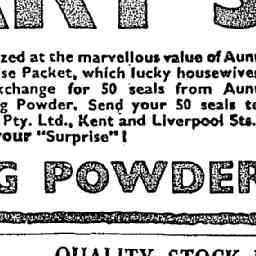

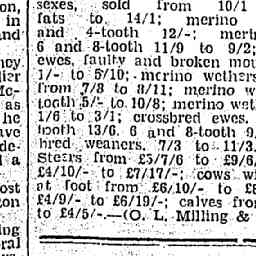
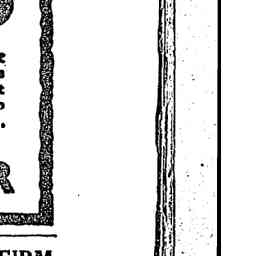
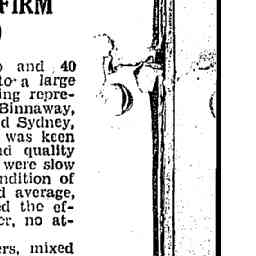
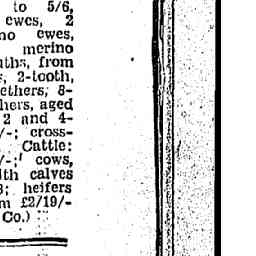
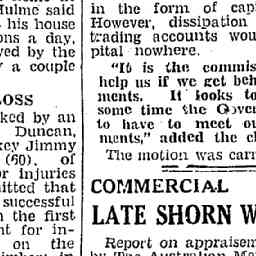
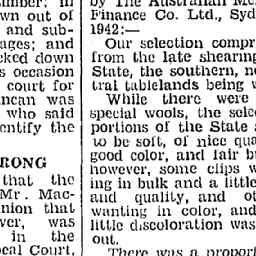
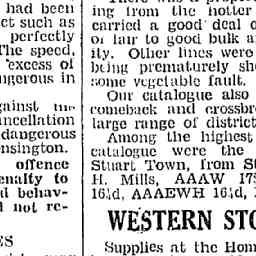
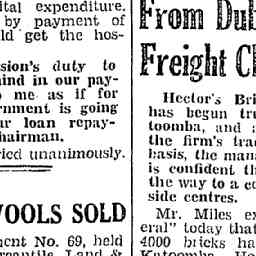
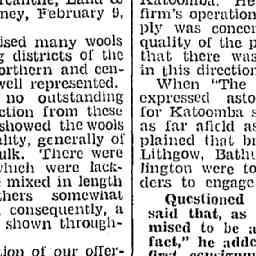
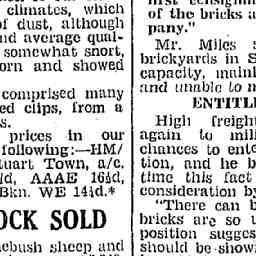
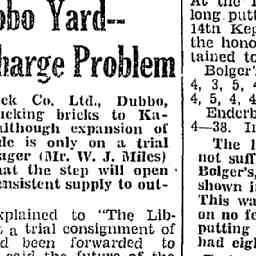
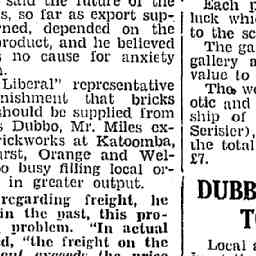
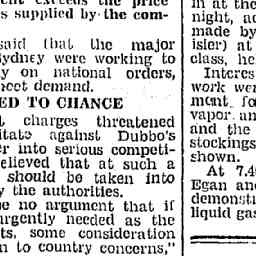
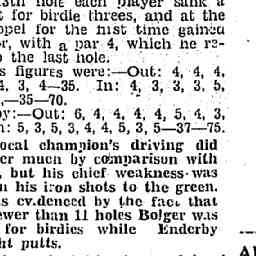
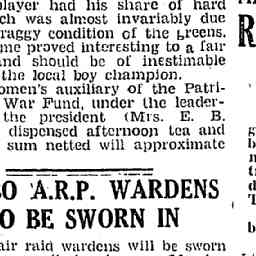
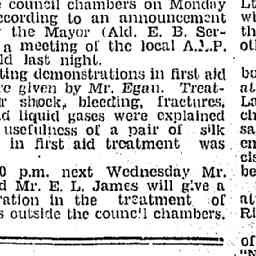
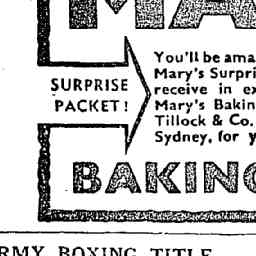
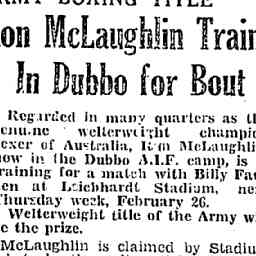
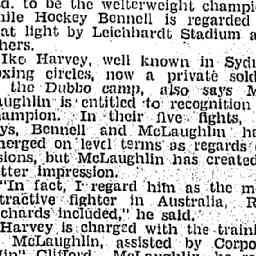
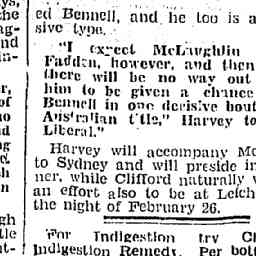
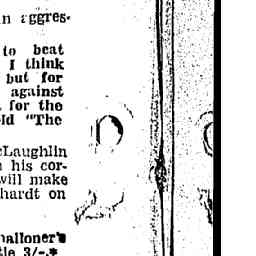
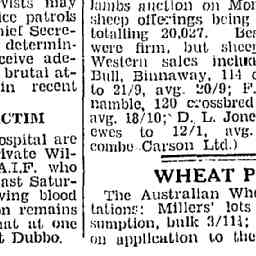
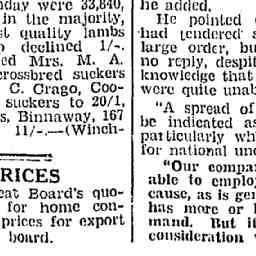
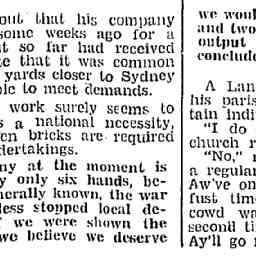
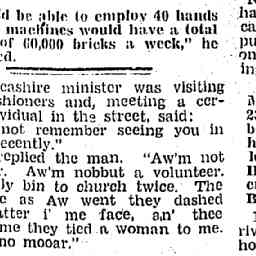
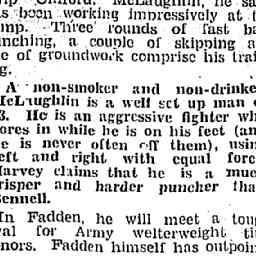

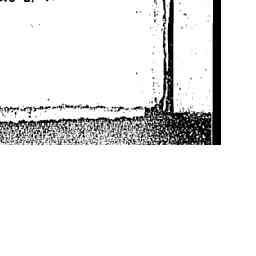
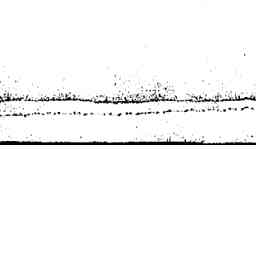
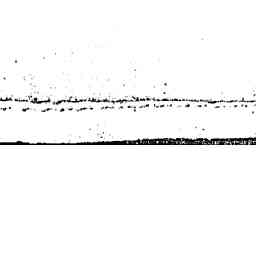
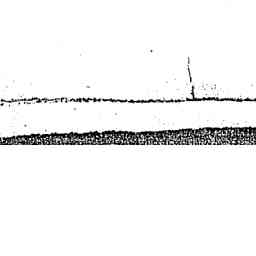





Comments (0) Help